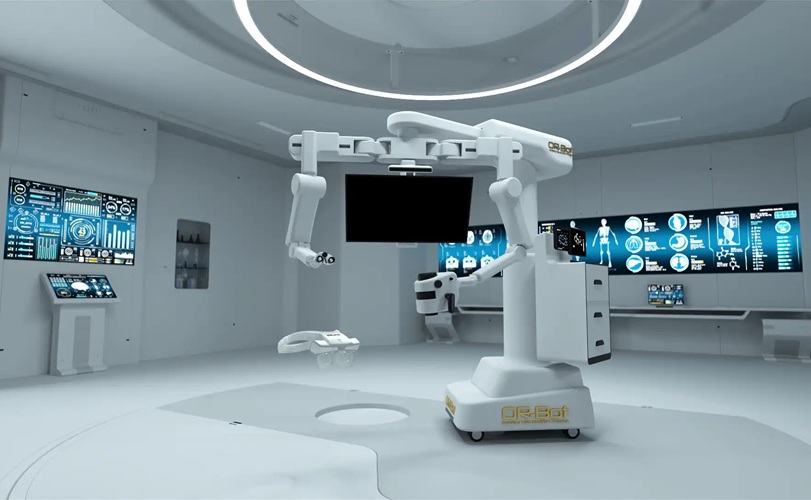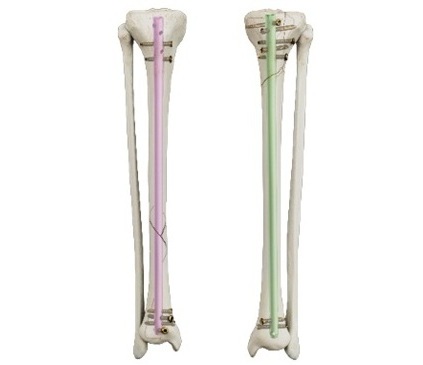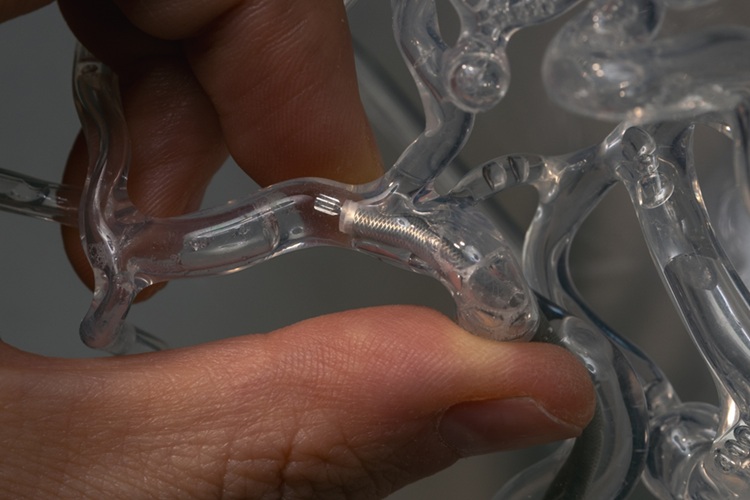FDA to Establish Oversight Rules for AI in Medicine
|
By HospiMedica International staff writers Posted on 17 Apr 2019 |
The US Food and Drug Administration (FDA; Silver Spring, MD, USA) is developing a framework for regulating artificial intelligence (AI) products used in medicine that continually adapt based on new data.
In a white paper published in March 2019, the FDA details the criteria the agency proposes for rules that will be used to determine when and if medical products that rely on AI will require FDA review before being commercialized. The FDA review may include examination of the underlying performance of a product’s algorithms, a manufacturer’s plan to make modifications, and the manufacturer’s ability to manage the risks associated with any modifications.
The FDA has already approved medical devices that rely on “locked algorithms,” which do not change each time they are used, but instead are changed by a manufacturer at intervals, using specific training data and a validation process to ensure proper functioning of the system. Among such devices approved during 2018 were a device that is used to detect degenerative diabetic retinopathy, and another one designed to alert providers of a potential stroke in patients.
According to the FDA, the proper performance of those locked algorithms, and others like them, is crucial to ensuring that doctors base life-and-death treatment decisions on accurate information. That task is harder for products that learn and evolve on their own, in ways that are difficult even for the manufacturers of such systems to understand. An example of such one system uses AI algorithms to identify breast cancer lesions on mammograms and learns to improve its confidence and identify new subgroups of cancer, based on its exposure to additional real world data.
“A new approach to these technologies would address the need for the algorithms to learn and adapt when used in the real world. It would be a more tailored fit than our existing regulatory paradigm for software as a medical device,” explained FDA outgoing commissioner Scott Gottlieb, MD. “I can envision a world where, one day, artificial intelligence can help detect and treat challenging health problems, for example by recognizing the signs of disease well in advance of what we can do today.”
The FDA recently launched a fellowship program with Harvard University (Boston, MA, USA) on AI and machine learning, which is focused on designing, developing, and implementing algorithms for regulatory science applications. One such example is innovative clinical decision support software that uses AI algorithms to help alert neurovascular specialists of brain deterioration.
Related Links:
US Food and Drug Administration
In a white paper published in March 2019, the FDA details the criteria the agency proposes for rules that will be used to determine when and if medical products that rely on AI will require FDA review before being commercialized. The FDA review may include examination of the underlying performance of a product’s algorithms, a manufacturer’s plan to make modifications, and the manufacturer’s ability to manage the risks associated with any modifications.
The FDA has already approved medical devices that rely on “locked algorithms,” which do not change each time they are used, but instead are changed by a manufacturer at intervals, using specific training data and a validation process to ensure proper functioning of the system. Among such devices approved during 2018 were a device that is used to detect degenerative diabetic retinopathy, and another one designed to alert providers of a potential stroke in patients.
According to the FDA, the proper performance of those locked algorithms, and others like them, is crucial to ensuring that doctors base life-and-death treatment decisions on accurate information. That task is harder for products that learn and evolve on their own, in ways that are difficult even for the manufacturers of such systems to understand. An example of such one system uses AI algorithms to identify breast cancer lesions on mammograms and learns to improve its confidence and identify new subgroups of cancer, based on its exposure to additional real world data.
“A new approach to these technologies would address the need for the algorithms to learn and adapt when used in the real world. It would be a more tailored fit than our existing regulatory paradigm for software as a medical device,” explained FDA outgoing commissioner Scott Gottlieb, MD. “I can envision a world where, one day, artificial intelligence can help detect and treat challenging health problems, for example by recognizing the signs of disease well in advance of what we can do today.”
The FDA recently launched a fellowship program with Harvard University (Boston, MA, USA) on AI and machine learning, which is focused on designing, developing, and implementing algorithms for regulatory science applications. One such example is innovative clinical decision support software that uses AI algorithms to help alert neurovascular specialists of brain deterioration.
Related Links:
US Food and Drug Administration
Latest AI News
Channels
Critical Care
view channel
New System Measures Blood Sodium Without Needles
Accurately measuring blood sodium levels is crucial for diagnosing and managing various health conditions, including dehydration, kidney disease, and certain neurological and endocrine disorders.... Read more
Monitoring Airborne Fungal Spores Could Help Predict COVID-19 & Flu Surges
A new study presented at ASM Microbe 2025 has provided strong evidence that higher levels of fungal spores in the air are closely associated with spikes in influenza and COVID-19 cases. The findings suggest... Read moreSurgical Techniques
view channel
First-Ever Technology Makes Blood Translucent During Surgery
No matter the discipline or scale, bleeding is a regular part of any surgery and can create several challenges. In operating room imaging, seeing through blood in real-time during a surgery has been a... Read more
Tibia Nailing System with Novel Side-Specific Nails to Revolutionize Fracture Surgery
Smith+Nephew (Hull, UK;) has launched its new TRIGEN MAX Tibia Nailing System for stable and unstable fractures of the tibia, including the shaft. It is the only system to now offer trauma surgeons the... Read morePatient Care
view channel
Revolutionary Automatic IV-Line Flushing Device to Enhance Infusion Care
More than 80% of in-hospital patients receive intravenous (IV) therapy. Every dose of IV medicine delivered in a small volume (<250 mL) infusion bag should be followed by subsequent flushing to ensure... Read more
VR Training Tool Combats Contamination of Portable Medical Equipment
Healthcare-associated infections (HAIs) impact one in every 31 patients, cause nearly 100,000 deaths each year, and cost USD 28.4 billion in direct medical expenses. Notably, up to 75% of these infections... Read more
Portable Biosensor Platform to Reduce Hospital-Acquired Infections
Approximately 4 million patients in the European Union acquire healthcare-associated infections (HAIs) or nosocomial infections each year, with around 37,000 deaths directly resulting from these infections,... Read moreFirst-Of-Its-Kind Portable Germicidal Light Technology Disinfects High-Touch Clinical Surfaces in Seconds
Reducing healthcare-acquired infections (HAIs) remains a pressing issue within global healthcare systems. In the United States alone, 1.7 million patients contract HAIs annually, leading to approximately... Read moreBusiness
view channel
Bayer and Broad Institute Extend Research Collaboration to Develop New Cardiovascular Therapies
A research collaboration will focus on the joint discovery of novel therapeutic approaches based on findings in human genomics research related to cardiovascular diseases. Bayer (Berlin, Germany) and... Read more

















